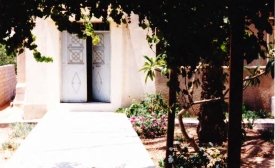israel
As The Jerusalem Post reports, the effort to make Israel’s case is being spearheaded by 400 college students posting comments, memes, video clips, images and explanatory graphics on Facebook and Twitter from dozens of computers in a “Hasbara war room” at the Interdisciplinary Center in Herzliya, north of Tel Aviv.
“Fashion connects all people,” said Mr. Drori, who interned at Azzedine Alaïa in Paris and Donna Karan in New York before returning to start Colle’cte. “It can be a bridge across color and religion.”
Israelis are the world's second biggest fans of America, with their 84 percent favorable opinion trailing only that of the Filipinos, with 92 percent. When ethnicity is taken into account, Israeli Jews are neck-to-neck with the Filipinos, with a 91 percent favorable opinion. Only 46 percent of Israeli Arabs are favorable to America, however.
For most citizens of Israel, Operation Protective Edge is being fought on two fronts. But as we learned from previous operations, the conflict has a third front, an international front, where public opinion is formed.
As of yet, no Israelis have been killed during the latest Gaza offensive. 174-0 is a tough ratio to explain. Especially for an operation that Israel claims is being taken in self-defense against terrorists in Gaza. But the Israeli Prime Minister’s office may have found an answer to this minor public-diplomacy challenge: Tinder, a popular online smartphone dating/hookup app.
Someone once told me that in Gaza “things are never so bad that they can’t get worse.” Those words came back when I read that the Israeli prime minister has told his military “to take the gloves off” to stop the rocket fire from Gaza.

How one scholar's understanding of the shared destiny of Palestinians and Israelis led her to the field of public diplomacy.
The Prime Minister’s Office and Foreign Ministry have been hard at work spreading Israel’s message in Operation Protective Edge for the last week in an effort that is mostly paying off, experts on public diplomacy in and out of the government said Sunday. “We see [public diplomacy] as a war front like any other,” Foreign Ministry Deputy Director-General for Communications and Public Diplomacy Arthur Koll explained.







